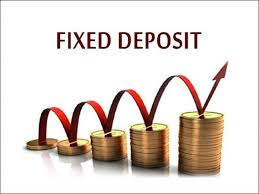When it comes to investing your hard-earned money, the options can seem overwhelming. Two popular investment avenues in India that are in comparison to each other are FD vs debt funds. While both aim to provide returns on your investment, they differ in terms of risk, returns, liquidity, and taxation. In this article, we’ll dive deep into the world of FDs and debt funds, helping you understand their unique characteristics. So you can make informed decisions based on your financial goals and risk appetite.
Get high ROI with 8.8% on Fixed Deposits. Invest today
Understanding Fixed Deposits
What are Fixed Deposits?
Fixed Deposits, or FDs, are a type of investment offered by banks and financial institutions. In this, you deposit a lump sum for a fixed tenure at a predetermined interest rate. The interest rate remains constant throughout the investment period, and you receive the principal and interest upon maturity.
Features of Fixed Deposits
- Fixed interest rates
- Guaranteed returns
- Suitable for risk-averse investors
- Flexible tenures ranging from 7 days to 5 years
- Low risk, as deposits up to ₹5 lakh are insured by the Deposit Insurance and Credit Guarantee Corporation (DICGC)
Calculating FD Returns
To calculate the maturity amount of your FD, you can use the following formula:
A = P (1 + r/n)^(n*t)
where
A = Maturity amount
P = Principal amount invested
r = Annual interest rate (in decimal form)
n = Number of compounding periods per year
t = Tenure of the FD (in years)
Suppose you invest ₹1 lakh in an FD offering an interest rate of 6% per annum. Further, it is compounded quarterly for a tenure of 3 years, then your maturity amount would be:
A = 100,000 (1 + 0.06/4)^(4*3) = ₹1,19,407 (rounded off)
You can easily calculate your FD returns using the Airtel Finance FD Interest Calculator.
Exploring Debt Mutual Funds
What are Debt Mutual Funds?
Debt mutual funds are investment schemes that primarily invest in fixed-income securities. This includes government bonds, corporate bonds, and treasury bills. These funds aim to generate returns through interest income and capital appreciation.
Types of Debt Mutual Funds
- Liquid Funds: Invest in short-term instruments with maturities of up to 91 days.
- Short Duration Funds: Invest in instruments with maturities between 1 to 3 years.
- Credit Risk Funds: Invest in lower-rated corporate bonds to generate higher returns.
- Medium to Long Duration Funds: Invest in instruments with maturities above 3 years.
- Ultra-Short Duration Funds: Invest in instruments with maturities between 3 to 6 months.
Risks Associated with Debt Funds
- Credit Risk: The risk of the bond issuer defaulting on interest or principal payments.
- Liquidity Risk: The risk of not being able to sell the units at a fair price during market downturns
- Interest Rate Risk: Bond prices are inversely related to interest rates. When interest rates rise, bond prices fall, and vice versa.
Returns from Debt Funds
The returns from debt mutual funds are not fixed and depend on various factors. They can be interest rates, credit quality of the underlying securities, and fund management. However, historically, debt funds have delivered returns in the range of 5% to 9% per annum. This depends on the type of fund and market conditions.
FD vs. Debt Funds: A Comparative Analysis
The following are key comparisons of debt fund vs fixed deposit, helping you make an informed investment decision:
Risk Profile
|
Investment |
Risk Level |
|
Fixed Deposits |
Low |
|
Debt Mutual Funds |
Low to Moderate |
FDs are considered virtually risk-free as they offer guaranteed returns and are insured up to ₹5 lakh by the DICGC. On the other hand, Debt mutual funds carry low to moderate risk. This varies according to the type of fund and the credit quality of the underlying securities.
Returns
|
Investment |
Returns (per annum) |
|
Fixed Deposits |
8% to 8.8% |
|
Debt Mutual Funds |
5% to 9% |
FDs offer guaranteed returns. At the same time, debt funds have the potential to generate higher returns based on market conditions and fund management. However, the returns from debt funds are not assured and are subject to market risks.
Liquidity
|
Investment |
Liquidity |
|
Fixed Deposits |
Low |
|
Debt Mutual Funds |
High |
FDs have a fixed lock-in period, and premature withdrawals attract penalties. In contrast, debt mutual funds offer high liquidity, as most funds are open-ended. This allow investors to redeem their units at any time.
Taxation
|
Investment |
Taxation |
|
Fixed Deposits |
Interest taxed as per income tax slab |
|
Debt Mutual Funds |
Short-term capital gains taxed as per income tax slab; Long-term capital gains taxed at 20% with indexation benefit |
The interest earned from FDs is added to your total income and taxed as per your income tax slab. For debt mutual funds, the taxation depends on the holding period. Short-term capital gains (if units are held for less than 3 years) are taxed as per your income tax slab. Simultaneously, long-term capital gains (if units are held for more than 3 years) are taxed at 20% with indexation benefits.
Making the Right Choice
Choosing between a debt fund or fixed deposit depends on your financial goals, risk appetite, and investment horizon. If you prioritize safety and guaranteed returns, FDs might be a suitable choice. You can explore the Airtel Finance Fixed Deposit options, which offer competitive interest rates and easy online application process.
On top of that, let’s say you are willing to take some risk and have a longer investment horizon. Then, debt mutual funds can potentially generate higher returns. It’s essential to assess your risk profile and investment objectives before making a decision.
The comparison of debt mutual fund vs FD is a popular investment avenue in India. They cater to different risk profiles and investment goals. FDs offer guaranteed returns and low risk. In the meantime, debt funds provide the potential for higher returns with low to moderate risk. Thus, it’s important to know the key differences between FDs and debt funds regarding risk, returns, liquidity, and taxation. With this, you can make informed decisions aligned with your financial objectives.
Remember, investing is a personal journey, and what works for one investor might not be suitable for another. Take the time to assess your risk appetite, investment horizon, and financial goals before making a choice. If you need further assistance, consider reaching out to a financial advisor who can guide you based on your circumstances.
Ready to start investing? Explore the Airtel Finance Fixed Deposit options and enjoy the convenience of investing from the comfort of your home. With competitive interest rates and a seamless online process, Airtel Finance makes investing in FDs a breeze. Take control of your financial future today!
Get high ROI with 8.8% on Fixed Deposits. Invest today
FAQs:
1. Which investment is better for risk-averse investors: FD or Debt Funds?
For risk-averse investors, FDs are a more suitable choice. They offer guaranteed returns and are insured up to ₹5 lakh by the DICGC.
2. Are Debt Funds suitable for short-term investments compared to Fixed Deposits?
Debt funds, especially liquid and ultra-short-duration funds, can be suitable for short-term investments. They offer higher liquidity compared to FDs, which have a fixed lock-in period.
3. How do Fixed Deposits (FD) and Debt Funds differ in terms of risk and returns?
FDs offer guaranteed returns with low risk. Debt funds provide the potential for higher returns with low to moderate risk. This depends on the type of fund and market conditions.
4. How does liquidity compare between Fixed Deposits and Debt Funds?
Debt mutual funds offer high liquidity as most funds are open-ended, allowing investors to redeem their units at any time. FDs, on the other hand, have a fixed lock-in period, and premature withdrawals attract penalties.
5. What are the tax implications of investing in FD versus Debt Funds?
The interest earned from FDs is added to your total income and taxed as per your income tax slab. For debt mutual funds, short-term capital gains are taxed as per your income tax slab. Meanwhile, long-term capital gains are taxed at 20% with indexation benefits.



